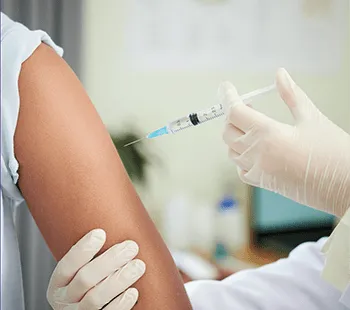June 21, 2024

Mpox is still with us here in Colorado, and we’re taking this time during Pride month to offer you resources to get vaccinated and for treatment if you have contracted the virus.
What is Mpox and how do I know if I have it?
Mpox (formerly known as monkeypox) is a disease caused by infection from a virus known as Monkeypox virus. This virus is part of the same family as the virus that causes smallpox. People with Mpox often develop a rash and other symptoms such as a fever. The rash will go through several stages, including scabbing, before healing. Mpox can look like syphilis, herpes, blisters or acne. Some people also feel like they have the flu when they have Mpox. Learn more about the signs and symptoms of Mpox.
How can I prevent myself from getting Mpox? You can prevent getting infected with the Mpox virus by avoiding close contact with a person who is displaying symptoms of Mpox and by washing your hands thoroughly after contact with a person who is experiencing Mpox symptoms. | How is Mpox transmitted? Mpox is transmitted through close physical contact with an infected person, including sex, or through clothes, sheets, blankets or other materials that have been in contact with the rashes or fluids from another person. |
Getting vaccinated is the best way to prevent getting Mpox.
The majority of cases in the U.S. and Colorado are in people who are not vaccinated or who have received just one dose of JYNNEOS, the vaccination that protects you from Mpox. Read information about who should get vaccinated against Mpox and why it is important to receive the two doses needed for maximum protection.
The Public Health Institute at Denver Health is here to support you during your 28-day vaccination cycle. There are multiple clinics where you can get vaccinated. Schedule an appointment at any of these clinics:
Did you know? You can also be tested for Mpox!
If you are exhibiting symptoms, you can be tested at several locations at Denver Health. You can make an appointment at the Denver Sexual Health Clinic, 303-602-3540, or any primary care clinics, 303-436-4949. Or you can come to any of our urgent care locations. Getting tested can give you reassurance and confidence to enjoy Pride month and your summer in Denver.
Remember! The majority of cases in the U.S. and Colorado are in people who are unvaccinated or who have received one dose of JYNNEOS. The vaccination is a two-dose cycle that happens in the span of 28 days or one month. Getting the second dose within 28 days after the first one is ideal, and if you can, you should try to complete the series during this time. However, if you miss this window, you still can receive the second dose without needing to restart the series. Start your vaccination cycle today to protect yourself and your loved ones!
What happens if I think I have Mpox or might have been exposed to it?
Public Health Institute at Denver Health is here to support you if you have Mpox or have been exposed to it. Contact your provider at any of our clinics or set up an appointment, and we can assist you in determining the right steps for your health and wellbeing.
We are here to support you as you take proactive measures—whether that means seeking treatment if you suspect you have Mpox or accessing a vaccine if you have been exposed and have not developed symptoms.
Always feel free to reach out to us. We are here to provide you with care and guidance to support your health and wellbeing.

